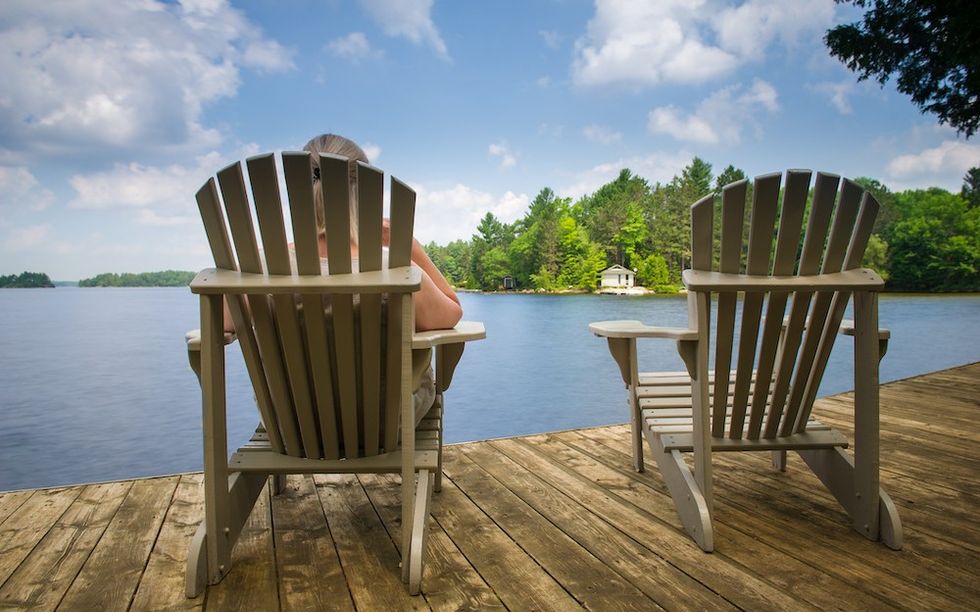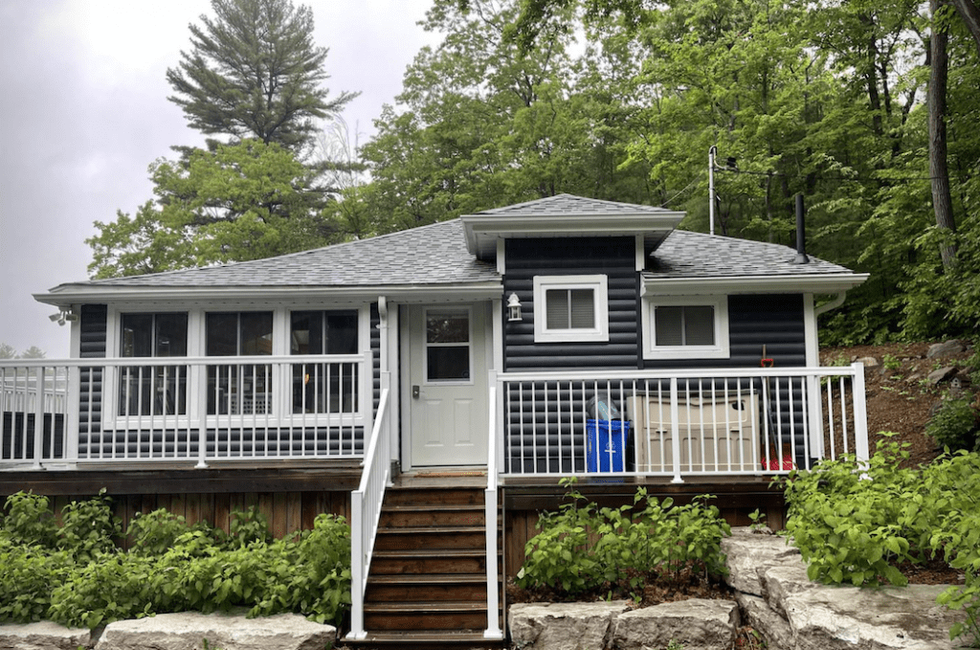Canada’s cottage country has been front and centre in real estate headlines this week. And the talk of the town(s) isn’t the fact that the official start to the country’s beloved cottage season is just a few weeks away; rather, it’s the newly introduced increase in capital gains tax via the latest federal budget – something way less easy and breezy than a dockside brew.
For those (perhaps blissfully) in the dark, last week’s Budget 2024 announced new capital gains tax changes that will see those who sell recreational properties dish out more of their profit to the government. When it comes to the sale or transfer of recreational properties, Budget 2024 raises the inclusion rate on capital gains greater than $250,000 to 66.7% from 50%. The new rules are set to take effect on June 25.
So, what does that mean for Canada’s cottage owners? For some – including sellers who expect to make only a relatively modest profit from their sale (less than $250K) – not much, frankly. For those who stand to earn more than $250K, it may be more important to speed up the sale before the new rules take effect by moving up closing dates or dropping list prices. For other cottagers, the hike is simply not significant enough to stress over the ticking tax clock.
In other words, it's not that big of a deal, either numerically or relatively speaking.
To break it down for you/put things into perspective, if you made a $500,000 capital gain on the sale of your recreational property, you would pay $133,825 in taxes to the government under the current 50% rate. Under the new rate, you would have to dish out $156,129 – a difference of $22,304. While that figure isn’t nothing – it’s still significant, especially in this economy – it’s not as big a deal as one would assume, based on the recent headlines and hoopla. (It's certainly not 'chaos'.)
Despite the dramatic headlines, Maryrose Coleman, Sales Representative and Senior Vice President, Sales, Halloran & Associates, and co-founder of Muskoka District Rentals, says she isn’t seeing a flurry of activity in the market from clients either looking to sell or to speed up the sale of their recreational property quicker than anticipated. While nobody’s thrilled by the tax hike, she says that it’s not a big enough deal to inspire any sort of rash decision making on the real estate transaction front.
“I think there are for sure people who will feel compelled to speed up a sale, but it’s most likely going to be a process that was already in place, as opposed to it acting as a catalyst as a decision to sell,” says Coleman. “These are people who were going to sell anyway. Personally, I haven’t had a ton of people reaching out and saying they want to speed things up.”
Most people who are familiar with the cottage country real estate market understand that – unlike in a city like Toronto – most cottage country properties (especially ones with unique properties, like water access-only) sit on the market for quite some time. Most sellers expect as much, says Coleman. So, her clients are in no rush.
It should be noted, however, that Coleman’s clients are safely classified as upper middle class or upper class and include cottage owners in the notoriously pricey Muskoka region. But, it should be considered that – from coast to coast – not all of Canada’s cottage owners own on Ontario’s prime, and pricey, lakes. In fact, there are countless middle class cottage owners across the country. Some may own a family cottage that’s been passed down to them that they can barely hold onto and perhaps rent it out to offset costs, says Coleman. As she points out, cottage country’s hot rental market of pandemic days has cooled along with real estate prices. “In this case, the capital gains hike may indeed be the final straw in a decision to sell,” says Coleman.
Then there’s the already complicated situation of multi-generational cottages that have been in the family for many decades. In this case, selling or handing down a family cottage will inevitably come with hefty capital gains taxes to begin with. The ability to transfer a property before June 25 (as opposed to taking a gamble and trying to sell it) may put added pressure on some long-time cottaging families, perhaps inspiring this transaction quicker than anticipated.
While frustrating for recreational property owners, the capital gains hike could mean good news for those looking to purchase a cottage or chalet in Canada, as sellers may be more willing to negotiate. After a red-hot run inspired by the pandemic, cottage country prices cooled with rising interest rates and continue to remain relatively low. “Buyers have more opportunities,” says Coleman. “Inventory is up this year without question. But I wouldn’t attribute that to capital gains changes. It’s because buyers are back in the market, so sellers are coming off the sidelines; maybe they were stuck on [a] price no longer sustainable in this market.”
On the other side of the coin, highlights Coleman, are those sellers who still think the recreational market real estate prices of pandemic times will fly today and are holding out on that price tag – higher capital gains tax or not.
“With people who have been stuck on their price from the crazy marked-up COVID era and who want a price above the market value opinion – it doesn’t seem to bother them to keep their cottage on the market, even if they sell for less in the end and pay more tax,” says Coleman. “If they were to relist at a lower price and sell before June 25, they would have more return, but I’m not seeing that. I am not sure if people just don’t understand the implications of these changes, or that they aren’t that significant.”























